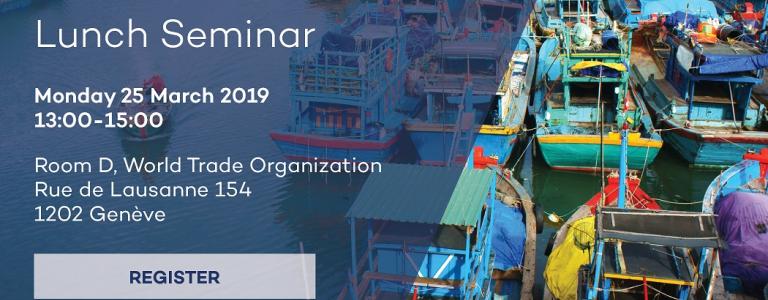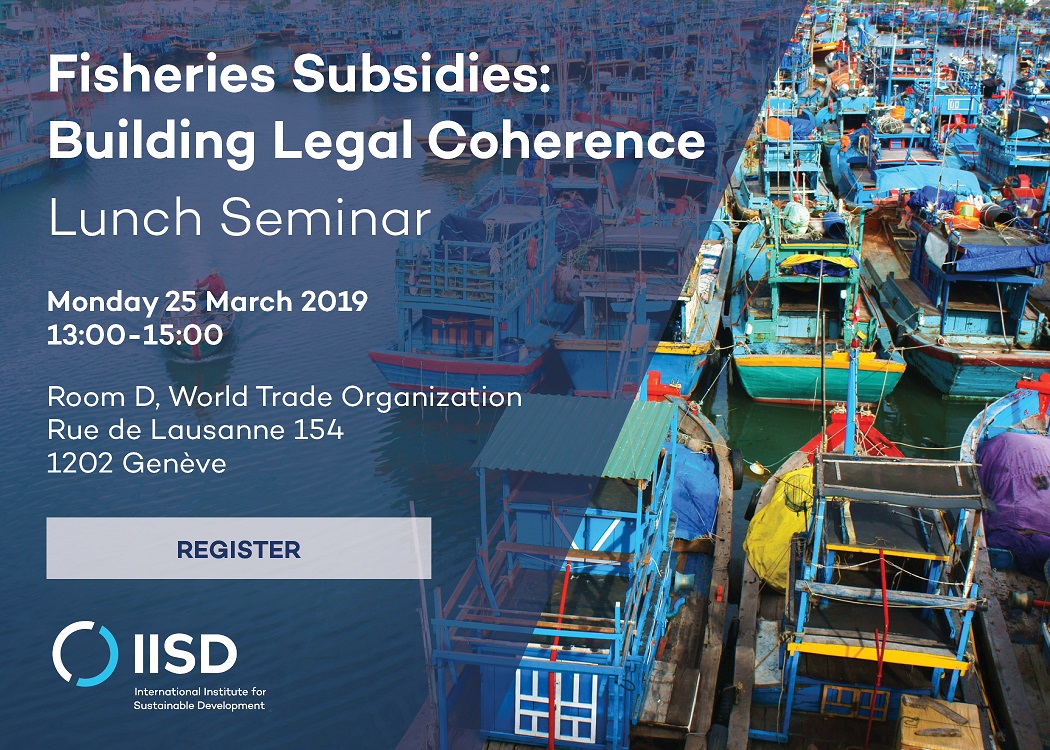Fisheries Subsidies: Building legal coherence
Reflecting on key issues in the WTO fisheries subsidies negotiations, experts will discuss potential approaches consistent with existing international laws.
The International Institute for Sustainable Development announces a second side event in support of WTO fisheries negotiations, titled Fisheries Subsidies: Building Legal Coherence.
This seminar will give delegations an opportunity to reflect on key issues in the negotiations with the benefit of input from experts in an informal and non-negotiating setting.
The seminar will explore how WTO disciplines could be crafted to ensure coherence with relevant existing international law frameworks. Discussion will cover issues such as the role of Paragraph 3 of the IPOA-IUU in the new disciplines and the standard of scientific evidence that might be required of decisions referred to in the disciplines.
Details
Lunch Seminar – 25 March 2019
Room D, World Trade Organization
Rue de Lausanne 154, 1202 Geneva, Switzerland
Registration
Attendance is by invitation only. Please email Eleonora Bonaccorsi to express interest.
Agenda
13:00 – 13:30 Light lunch available outside Room D
13:30 - 13:40 Opening Remarks by Alice Tipping - Lead, Fisheries Subsidies, IISD
13:40 - 14:20 Presentations
Adelaida Rey Aneiros – International Fisheries Policy and Law Expert, FAO
Rambod Behboodi – Partner, King & Spalding
14:20 - 15:00 Open discussion moderated by Alice Tipping
Upcoming events
Building Bridges: The State of Nature-Based Investments
Join us for a panel at the Building Bridges conference in Geneva, Switzerland, to discuss the state-of-play of nature-based investments and the potential opportunities they present.
Through Her Lens: Women leading change in sustainable agriculture and market inclusion
Despite the critical role that women play in agricultural production, they still do not have equal access to global agricultural supply chains on terms that benefit them.
A Municipal Perspective on the Value of Natural Infrastructure
This webinar will showcase examples the cost-effectiveness of natural infrastructure from a municipal perspective. Focusing on what municipalities need—what evidence and numbers they rely on, and what tools and planning processes are required to ensure that natural infrastructure is assessed alongside traditional infrastructure for cost-effectiveness.

